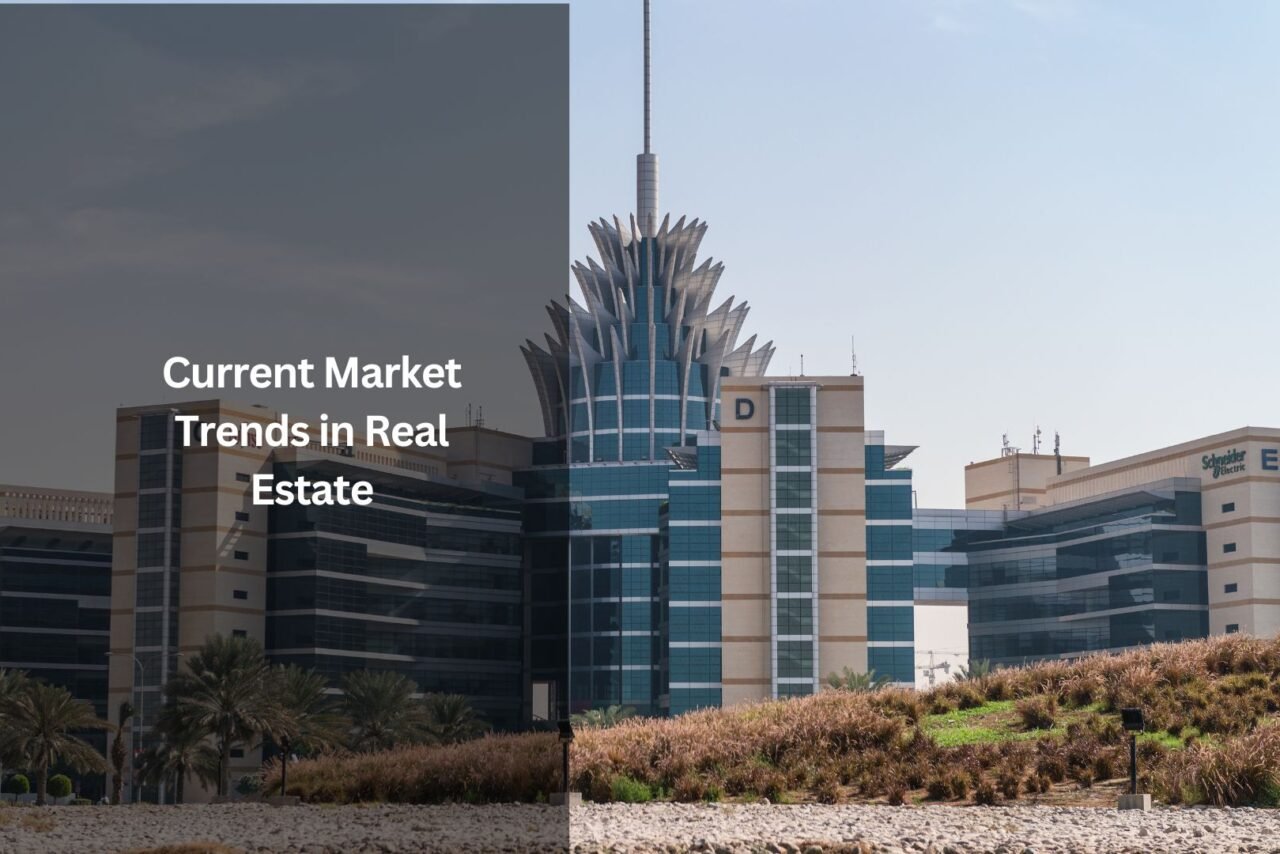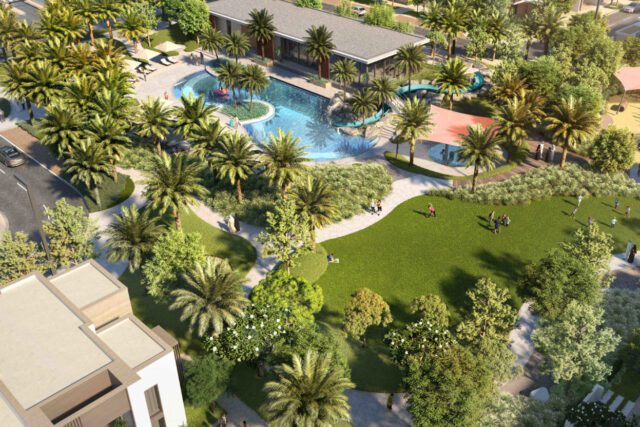
This demand for real estate in Dubai has increased owing to the country’s strategic location and foreign investor attraction by the government. Because of the intensifying competition, developers are luring clients with extra incentives and payment plans.
With an astounding 37,154 transactions totaling AED 109.85 billion in the first quarter alone, the market shows no signs of slowing down.
The following article will examine the present situation of the Dubai real estate market and review some trends to watch if you want to purchase a home there.
Overview of Dubai’s Real Estate Market
As per the records, there was a 20% increase in sales transactions compared to the first three months of last year, with 37,154 sales recorded as opposed to 31,027 in Q1 2023. Additionally, the value of these sales transactions reached almost AED 109.85 billion, representing a 23.3% rise from last year.
This year’s anticipated delivery of 64,000 new units is the highest since 2015 indicating an increase in demand and fast-paced development.
Under construction units are abundant in Jumeirah Village Circle (JVC), suggesting that investors and residents are still seeking off-plan properties there.
The Residential Real Estate Market
According to reports and data gathered which describe that Dubai is experiencing a great surge in its property value and prices. In the first nine months of 2023 alone, there were 116,116 new property transactions made by the so-called “Dubai Land Department” at an approximate value of Dh429.6 billion (USD 117 billion). Compared to previous year’s figures, this is a 33.8% increase in total transactions and 36.7% higher prices than last year’s ones.
Investors from different places are expected to keep demanding residential units in Dubai without interruptions due to rising economies due to foreigners’ investments in this region over the years since it got its independence. A good number of affluent individuals from all over the world including Indians, Chinese people, British citizens among others have invested extensively into real estate sectors of Dubai over the past few years. Apart from that, there is also a high-demand for shares in Dubai’s housing sector coming from people who reside in South America such as Mexico and Canada as well.
Availability of Residential Buildings
Dubai developers are laboring at new apartment projects to serve the growing demand for these kinds of housing. The number of houses to be built within the next 5-6 years may be about 120000, with an annual delivery rate between 20000 and 30000 units. Of course, not everything is going to turn out as planned it could turn out a big achievement or worse delay. The delayed timetable prevents an overstock situation that could result in decreased rents and selling prices.
By 2024, there would be an expected provision of 5000 residential units in Abu Dhabi ready for occupation. In addition, this increment will also help stabilize the prices in real estate market because it meets the growing demand for houses.
Trends in Prices
The cost of residential real estate in Dubai has been constantly rising. In Q3 2023, residential prices went up by 19.6% per year, with an average appreciation of 19.7% and 18.9% for apartments and villas respectively. These price increments were still prevalent in November where average annual price increments for apartments ballooned to Dh1,374 per square foot representing an 18.3% increase while that of villas increased to Dh1,679 making up a 22.2% rise.
It’s crucial to remember that the market is still dynamic and that several factors can cause prices to change. As a result, before making any decisions, investors and buyers should undertake in-depth research and speak with real estate experts.
Ready vs. Off-Plan Properties
There is a difference between ready and off-Plan properties. Off-plan properties are those that are not yet built and still in the construction stages. These homes frequently provide appealing payment schedules along with possible capital growth. However, because they can be rented out right away, ready-to-occupy properties offer quick returns on investment.
Experts in the field say that compared to off-plan properties, ready-to-occupy properties are still in demand. The desire for instant rental income as well as the security and stability that come with owning a completed property are the driving forces behind this preference.
The Market for Commercial Real Estate
Dubai’s commercial real estate sector has blossomed alongside the country’s housing market. There has been an increase in the volume of sales for office units in Dubai, which indicates that the capital values are rising on a monthly basis. On the other hand, Dubai’s average price per square meter for office units has been increasing every year since 2010 signifying strong market conditions. Moreover, it is this city that boasts many shopping centres and malls which contribute to its vibrant commercial property market.
Market for Industrial Real Estate
Positive changes have also been observed in Dubai’s industrial real estate market. Dubai’s industrial supply rental prices range widely, from high to low, depending on the location. There have been quarterly variations in the capital values of industrial properties, which suggests variations in the market. In general, companies wishing to establish a foothold in the area have opportunities in Dubai’s industrial real estate market.
Technological Developments in the Property Industry
Dubai’s realty market constantly expands, while technological improvements are now important for this business. This has made purchasing and selling the property as well as its management easier. The two major advances are proptech innovations and smart home integration.
Proptech Advancements
Proptech, or property technology refers to the use of technology within the real estate sector for improvement. The method in which properties are bought, sold, and managed entirely changed in Dubai due to proptech. One of the largest proptech innovations in Dubai is that of online property listings.
This innovation makes it easy for both sellers and buyers to market their properties to a wider audience.
Another proptech innovation that has become popular throughout Dubai during property viewings is Virtual Reality (VR) and Augmented Reality (AR). Through VR and AR, buyers can move through properties from the comfort of their own homes, making it more convenient and effective for them to realize what they want in a new place.
Integration of Smart Homes
The latest technology that is making great rounds and gained lots of attention in the Dubai real estate market is smart home integration. Through the Smart home integration feature, you can now manage your home accessories, appliances, and security systems through phones, tablets, and other devices remotely.
Furthermore, this has contributed to reduced energy costs and consumption through increased energy efficiency in households.
Through proptech developments as well as smart home integration in property transactions (buying/selling), management processes have been simplified thus making them more effective, convenient and sustainable than before.
Conclusion
It seems that the future of real estate in Dubai is bright since, among other things, it has seen the completion of major projects and several new initiatives introduced.
Much of the market growth has been attributed to increased demand for both residential and commercial properties.
The high-end real estate demand will keep increasing as Dubai hosts more multinational companies and attracts foreign direct investment





Leave a Reply